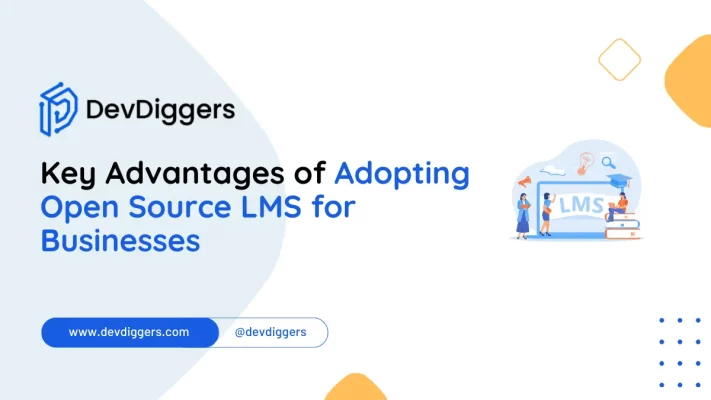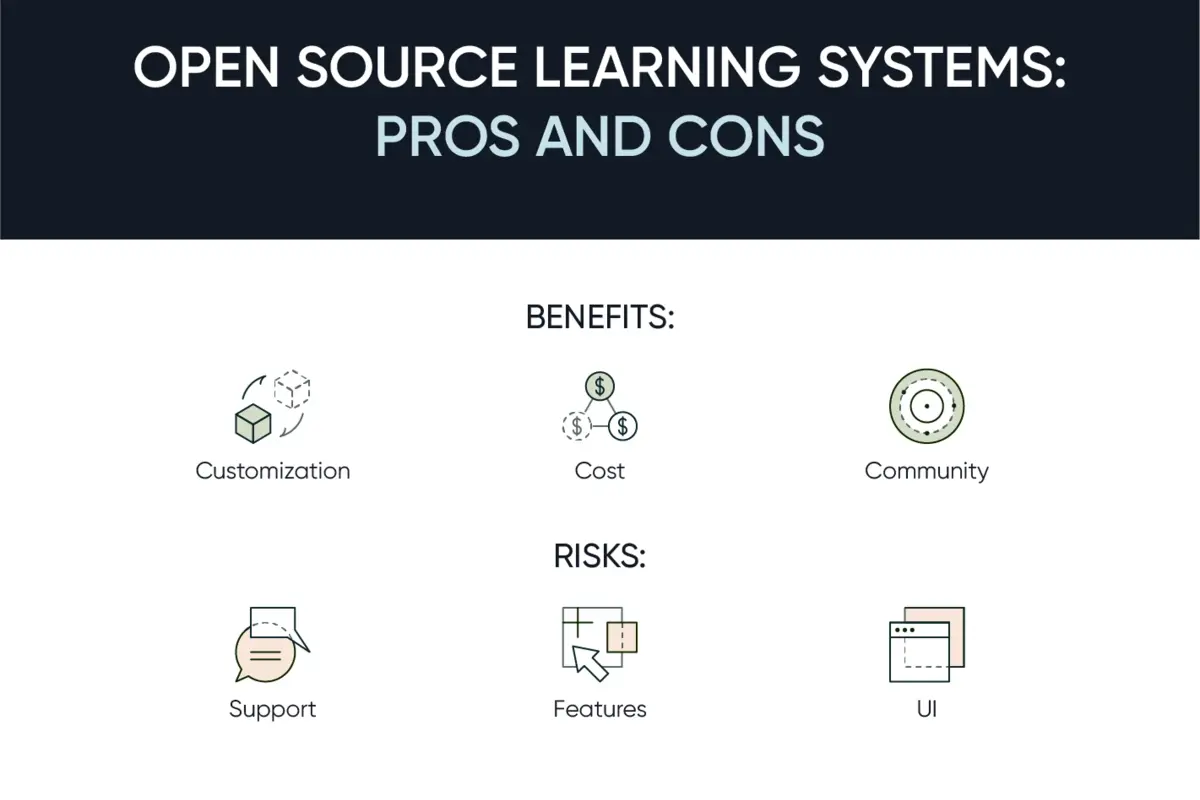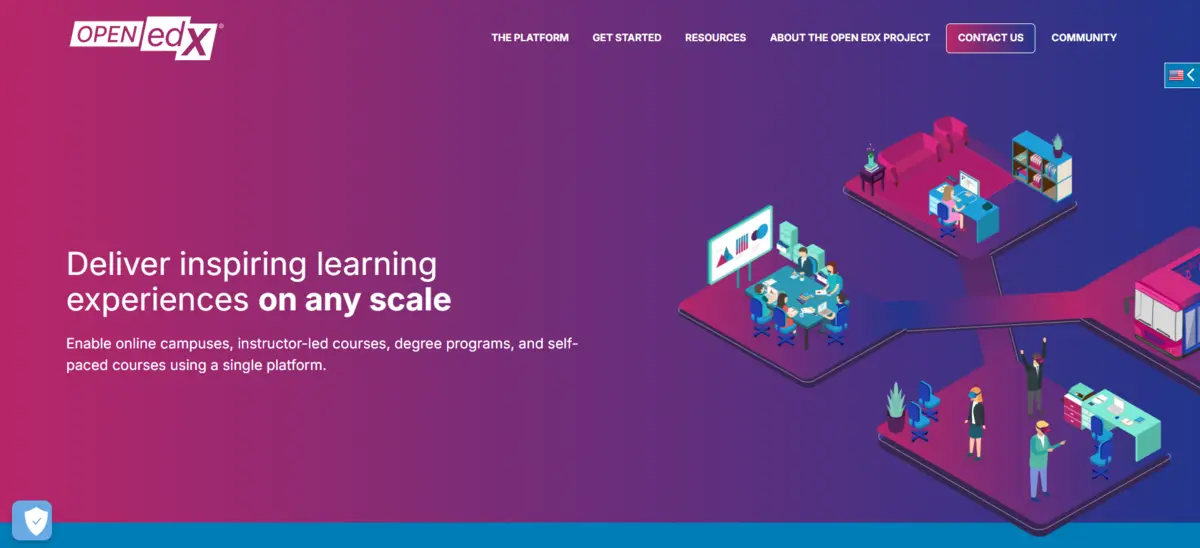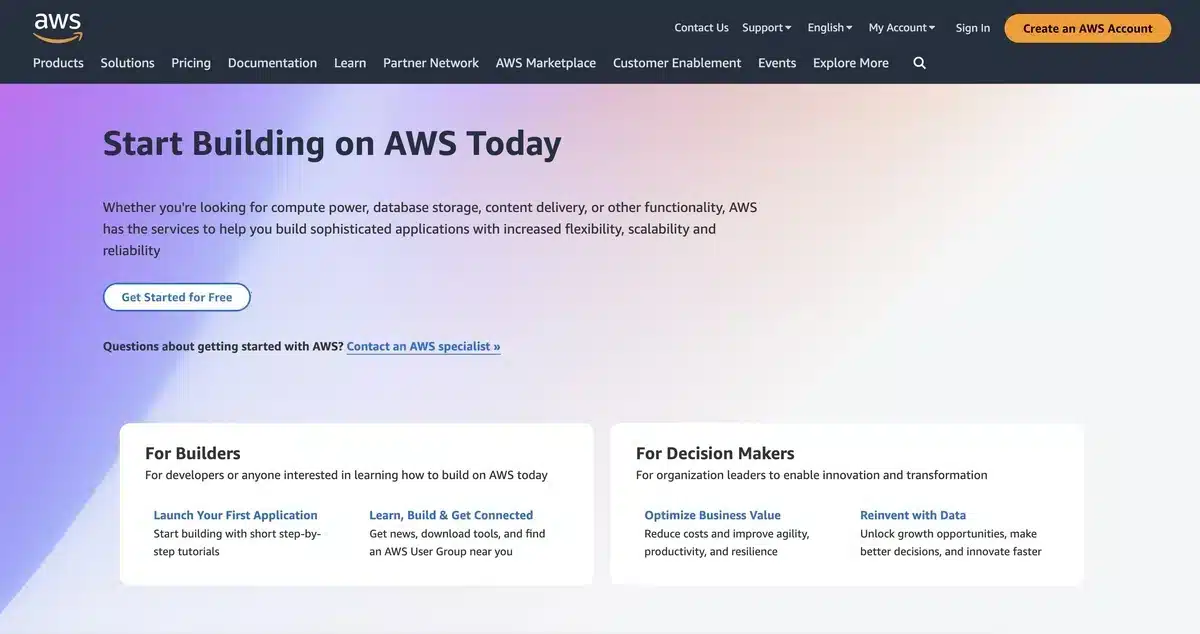- What is an Open Source LMS?
- Key Advantages of Adopting Open Source LMS for Businesses
- 1. Cost-Effectiveness
- 2. Flexibility and Customization
- 3. Enhanced Security and Data Privacy
- 4. Community Support and Continuous Innovation
- 5. Scalability
- 6. Third-Party Integrations and Compatibility
- 7. Ownership and Control Over Data
- 8. No Vendor Lock-In
- 9. Better Personalization for User Experience
- 10. Long-Term Viability and Reduced Dependence on Vendors
- 11. Environmental Impact and Sustainability
- Conclusion
- FAQs
Key Advantages of Adopting Open Source LMS for Businesses

- What is an Open Source LMS?
- Key Advantages of Adopting Open Source LMS for Businesses
- 1. Cost-Effectiveness
- 2. Flexibility and Customization
- 3. Enhanced Security and Data Privacy
- 4. Community Support and Continuous Innovation
- 5. Scalability
- 6. Third-Party Integrations and Compatibility
- 7. Ownership and Control Over Data
- 8. No Vendor Lock-In
- 9. Better Personalization for User Experience
- 10. Long-Term Viability and Reduced Dependence on Vendors
- 11. Environmental Impact and Sustainability
- Conclusion
- FAQs
With the development of e-learning and telecommuting, leveraging an open-source LMS as an organizational strategy to enhance training and development programs by companies is one of the fastest means of developing training and development programs. While proprietary systems have provided more proprietary
LMS solutions are much costlier, and open-source LMS provides customizable and inexpensive platforms by which firms can train their workforce, manage onboarding, and establish an ongoing learning culture.
In this blog, we’ll explore the key advantages of adopting open-source LMS for businesses and explain why so many organizations are turning to these flexible and robust platforms.
What is an Open Source LMS?

What is known as an open-source LMS (Learning Management System) is a software program created for the management and tracking of training programs and courses.
The most important reason why most businesses prefer to implement an open source LMS is that its open-source code gives its users access to it, meaning that they may, as much as possible modify it according to their business needs. One of the most used and popular open source LMS platform is RacoonGang.
Such platforms offer businesses control over the training environment, better handling of advanced security, increased customization, and a structure flexible to grow according to the needs of the business.
With all these facts, the adoption of open-source LMS for businesses is a great idea for business owners who want to create customized training solutions that can grow according to their needs.
Key Advantages of Adopting Open Source LMS for Businesses

1. Cost-Effectiveness

One of the major reasons why businesses opt to use open source LMS is that it is relatively inexpensive. Unlike proprietary systems, which charge basically a fee for licensing and subscription, open source LMS platforms are free to download as well as use.
Even though there would be hosting, maintenance, and customization costs, these are generally lower than the total cost encompassed by the commercial LMS platforms.
This can also translate to a business not having charges per user, which is good for companies wishing to scale training without incurring unnecessary costs.
Organizations looking to train a large team or have limited budgets would realize considerable savings by using open source LMS.
2. Flexibility and Customization

Besides, by using open source LMS in an organization, the company will enjoy flexibility because by having the access to the source code, it is possible for altering and personalization of the LMS to the specific training requirement and objectives of the business together with its brand.
Open source LMS allows the incorporation of features that can be tailor-made by external developers and designers, for example, gamified modules, assessment modules, and reporting modules.
A very important feature for such businesses in creating an environment that would be unique for a business: adoption of open source LMS for business suits best the priorities related to innovation and user engagement.
3. Enhanced Security and Data Privacy

With any employee or customer information, protection of data is what matters most. So, business benefits of open source LMS include having total control over data storage and management.
Proprietary LMS solutions would be more interested in ensuring secrecy rather than letting them set their own security protocols, making this a decent assurance that sensitive information will be guarded by businesses.
The fast and effective community working behind open source LMS solutions quickly identifies the potential security vulnerabilities and addresses them.
This collaborative approach makes the training environment much safer. Hence, any business with an interest in using open source LMS is making an excellent decision if its data security interests are looked after.
4. Community Support and Continuous Innovation

The second, secret strength of implementing open source LMS in businesses is the support that comes from global developers, educators, and professionals who add to the development of a platform.
User forums, documentation, and plugins on open-source LMS platforms like Moodle and Open edX ensure that the system stays relevant and innovative.
Normally, if a firm faces some problems or needs to implement some additional functionality, they can usually find the necessary help in the community forums.
Continuous innovation on the basis of community contributions makes adopting open-source LMS for businesses an extremely future-oriented choice, providing organizations with frequent updates, new features, and instant bug fixes.
5. Scalability

Scalability is another important benefit of open-source LMS platforms, particularly for businesses that are going to grow soon. Whether you have a small team or thousands of employees, the open-source LMS is scalable enough to accommodate the demands and training needs of an enterprise.
The scalability of the system can be, therefore, achieved based on organizational needs through either private servers or cloud platforms since businesses can manage hosting and infrastructure.
Adopting open source LMS for businesses, therefore provides a scalable and adaptable option to companies looking forward to the expansion of training programs without hefty, unaffordable costs associated with other infrastructures.
6. Third-Party Integrations and Compatibility

Another main advantage is that it can connect with other third-party applications for the open-source LMS. It is one of the major advantages that allows flexibility in choosing various tools, as most of the open-source platforms provide support through API-based integration.
Therefore, big companies find a way of becoming connected to popular tools like Google Analytics, Salesforce, Zoom, or HR software like Gustohr.
That would be compatible; companies can generate a more holistic learning environment.
Included would be features like SSO, real-time analytics, and smoother sharing of data. Businesses get the ability to create a learning platform by embracing open-source LMS, which completely agrees with their existing workflows and does so with reaped efficiency and consistency.
7. Ownership and Control Over Data
Another very important factor for adopting open-source LMS is data management control. The primary difference between proprietary LMS solutions and open source ones is that the former generally will not let companies own their data but with open source LMS, a company can surely own all of their training and user data.
This control is fundamentally important for data compliance, such as in the case of GDPR regulations that free up companies to store, analyze, and use training data based on their standards.
Business companies can thus use open source LMS with valued insights into training analytics while maintaining data privacy and compliance.
8. No Vendor Lock-In
The biggest problem with proprietary LMS platforms is vendor lock-in, which can turn against businesses when they need to change platforms or require other features.
An open-source LMS for business would end that kind of problem because the organizations would no longer have to rely on one vendor’s development roadmap or pricing structure.
This flexibility enables an organization to change providers, alter the system, or even host the LMS on their infrastructure without disruption.
Vendor lock-in is avoided through the adoption of LMS from open source for business organizations and this confers greater control and flexibility in operations.
9. Better Personalization for User Experience

Open source LMS systems offer a tremendous level of personalization capabilities that help a company deliver differentiated learning experiences for its employees.
The feature can be implemented here since it permits the creation of adaptive learning paths, customized dashboards, and gamification elements that make for an engaging and user-centric training experience.
But most importantly, personalization is extremely useful in maintaining the motivation of workers and encouraging continuous skill development. Companies can develop a training environment aligned with the brand and the taste of their learners through open source LMS for businesses.
10. Long-Term Viability and Reduced Dependence on Vendors
While opting for an LMS, businesses are making a long-term investment in employee training and development. However, open source is also treacherous if a vendor stops supporting a piece of software or offers unfavorable revisions.
At the same time, the use of open source LMS for businesses provides long-term feasibility with control over ownership, maintenance, and evolution.
Companies are now equipped to upgrade and maintain the LMS on their own, with the assistance of internal IT staff or freelancers, should the original vendor no longer support it.
Selecting open-source LMS for businesses allows firms to hedge against potential vulnerabilities that may arise from modifications made in proprietary software and future-proof their training infrastructure against such system changes.
11. Environmental Impact and Sustainability
Many companies today pursue sustainability in business practices, and open-source LMS for business aligns well with such goals. Solutions promote resource sharing and encourage companies to depend on closed proprietary systems.
In addition, open source LMS hosting is always an option from an environmental perspective: either cloud-based or even on-premises.
Businesses are therefore joining a more sustainable technology ecosystem. Opening their resources to the sustainability of open-source software also gives the company an excellent reputation for responsible tech.
Conclusion
The key advantages of developing an open-source LMS for business purposes are highly persuasive with regard to cost-effectiveness, customizability, security, and scalability.
From cost cuts and more controlled data to powerful third-party integration and future-proofing, the adoption of open-source LMS allows companies to build a training system that reflects their unique goals and values.
The active community and continuing innovation brought by open-source LMS enable organizations to have their choice of an adaptable training tool that assists in meeting the immediate requirements of training and long-term growth objectives along with supporting a learning environment encouraging skill development and improvement in employee performance.
In an environment where businesses are required to be agile, forward-looking, and competitive, open-source LMS adoption contributes not only to business operational goals but also supports sustainable, ethical business practices.
Open source LMS adoption meets the needs of companies that want to deliver dynamic, user-centered training.
FAQs
What is an open-source LMS?
An open-source LMS is a Learning Management System where the source code is freely available, allowing businesses to customize and modify it to suit their training and development needs.
Why should businesses consider adopting open-source LMS?
Businesses benefit from adopting open-source LMS by reducing costs, having the flexibility to customize features, owning their data, and avoiding vendor lock-in, all of which create a more efficient, personalized learning platform.
Are open-source LMS platforms secure?
Yes, open-source LMS platforms are generally secure, with strong community support and regular updates. Businesses also have the ability to enhance security settings to meet their specific data protection needs.
How does an open-source LMS differ from a proprietary LMS?
Unlike proprietary LMS platforms that require licenses and subscriptions, open-source LMS platforms are typically free to use and modify, providing businesses with more control over customization, scalability, and data management.
What are some popular open source LMS options for businesses?
Popular open source LMS options include Moodle, Totara, and Open edX, all of which offer a range of customization options to fit different business training requirements.

Abhijit Sarkar
Hi, I’m Abhijit Sarkar. I am deeply passionate about creating engaging content and exploring. My journey includes gaining valuable experience in content writing and creating useful resources for my readers.

Leave a Reply